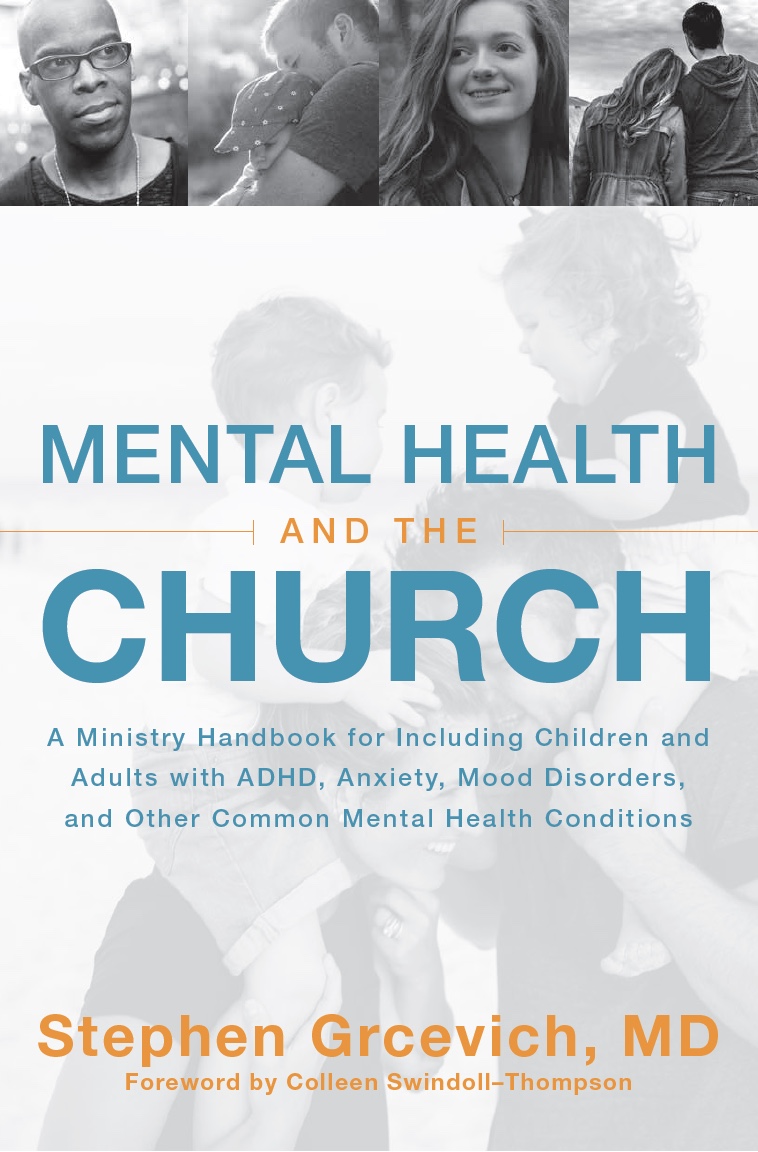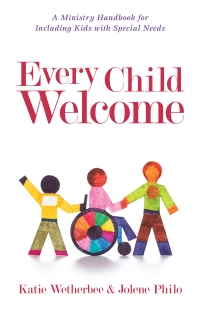 We as the church do a lousy job of welcoming and including families of children and teens with mental illness or trauma histories. I’d argue that a major reason why we struggle is the absence of an agreed-upon model for a mental health inclusion ministry for kids.
We as the church do a lousy job of welcoming and including families of children and teens with mental illness or trauma histories. I’d argue that a major reason why we struggle is the absence of an agreed-upon model for a mental health inclusion ministry for kids.
A couple of weeks ago, I shared a post on the topic Is Mental Illness a Disability? in which I quoted from a message I received from a highly respected ministry colleague…
Would I expect to find a person with mental health struggles (depression, bipolar, schizophrenia) to be a part of our disability ministry at XXXXXXX Church? No. For me, mental illness is a separate…and much needed…ministry within the church. Is this a topic that the special needs community would expect Key Ministry to address?
I’ve come to the conclusion that our team at Key Ministry needs to, at the very least, put forth a conceptual model for a mental health/trauma inclusion ministry that could be implemented by churches of all sizes, denominations and organizational styles. This model would be continually tested and refined through the experiences of ministry partners everywhere seeking to include kids and teens with ADHD, anxiety, attachment issues, mood disorders, post-traumatic stress and difficulties with social communication and interaction.
This post is going to kick off a series exploring what a inclusion ministry model for kids with mental illness might look like in practice. In order to design such a model, we must start by identifying as specifically as possible the problem(s) we seek to solve. Today, we’ll start by identifying seven barriers to regular church attendance/participation for kids with the conditions outlined above and their families. As our series progresses, we’ll delve into the barriers in depth and propose strategies for overcoming each barrier.
Barrier #1. Social isolation
Families of kids with many of the common mental health conditions described above are less likely to have as many opportunities for interaction with other families/children that produce invitations to church.
Barrier #2. Social communication
Churches are intensely social places. Consider the challenges that a child or teen faces in an environment surrounded by same-age peers who has difficulty processing body language/body space, tone/inflection of speech, common rules of social behavior or struggles to effectively use words to express thoughts or feelings in unfamiliar or stressful situations!
Barrier #3. Executive functioning
Kids with common mental disorders frequently experience difficulties with impulse control, problem-solving, learning from experience, managing time, delaying gratification and self-regulating emotions…all of which are common expectations in the environments in which we do much of our children’s and youth ministry.
Barrier #4. Sensory processing
Sensory processing differences are common among children with autism spectrum disorders, ADHD and anxiety disorders. Many respond differently to sound, light, touch and taste than their same-age peers, and ministry environments that some kids find engaging may be experienced as noxious by children with heightened sensitivity to sensory stimulation.
Barrier #5. Recognizing the child/teen’s need for support
Kids who are served (and served well) by our existing disability ministries typically experience an easily recognizable physical disability, or weaknesses in adaptive functioning such that they are readily identified by church staff or volunteers with no special training. Parents of kids with mental illness or learning disorders may not be aware that their child has a disability, recognize that their children would benefit from simple accommodations or supports at church, or may be reluctant to disclose their child’s condition to church staff/volunteers.
Barrier #6. The desire of kids to not be seen as “different”
Kids and teens with the conditions we’re discussing often express their desperation at wanting to “belong.” Older children and teens are often very reluctant to accept any help that might result in their peers viewing them as “different” in any way. The vast majority of kids I serve in my practice would be horrified by the prospect of having to be part of a “special needs ministry.”
Barrier #7. Parents with mental illness
The apple doesn’t fall far from the tree. Many common mental illnesses are highly heritable. Kids generally don’t drive themselves to church. Any effective strategy to include kids with mental illness or trauma histories at church needs to take into consideration the barriers that have excluded their parents or caregivers from church.
What do you think of this list? Are there any significant barriers you’d ADD to the list? Any barriers listed here that don’t belong on the list?
Next: Overcoming the Relationship Barrier
***********************************************************************************************************
 Key Ministry has assembled a helpful resource on the topic of Asperger’s Disorder and Spiritual Development. This page includes the blog series Dr. Grcevich and Mike Woods developed for Key Ministry, links to lots of helpful resources from other like-minded organizations, and Dr. Grcevich’s presentation on the topic from the 2012 Children’s Ministry Web Summit. Click here to access the page!
Key Ministry has assembled a helpful resource on the topic of Asperger’s Disorder and Spiritual Development. This page includes the blog series Dr. Grcevich and Mike Woods developed for Key Ministry, links to lots of helpful resources from other like-minded organizations, and Dr. Grcevich’s presentation on the topic from the 2012 Children’s Ministry Web Summit. Click here to access the page!





Great series, Dr. Grcevich and Key Ministry! Thanks for equipping churches on this important topic!
LikeLike
Another problem is that some kids with that sort of condition can become dangerously violent and destroy things or hurt others while having tantrums.
LikeLike
Hi Janet,
Some kids with mental illness may be more predisposed to anger management issues. Here are some thoughts on how we can include them at church…
https://drgrcevich.wordpress.com/beyond-zero-tolerance-when-kids-become-aggressive-at-church/
LikeLike
Please do not use the term “The apple does not fall far from he tree” in this context in # 7. I get your idea, but this paragraph needs to explain what you mean beyond transportation to church, and not all teenagers have inherited their parent’s mental illness.
LikeLike
Hi Naomi,
Thanks for your comment.
I’ll be doing an entire blog post as part of the upcoming series on this topic. To clarify, it may not help us to remove the barriers that keep kids from mental illness from being a part of church unless we also address the barriers that prevent PARENTS with mental illness from being a part of church.
LikeLike
Also a good children’s/teen MH ministry needs support for parents too. The 60 minuets documentary that was on on the last Sunday highlights this. The casserole story killed me.
LikeLike
Hi Betty Lynn,
The “casserole story” is tomorrow morning’s blog post.
LikeLike
I have 3 adopted children who have varying degrees of mental disabilities – from very slight to significant. The first two years of my daughter’s life was filled with trauma and she battles attachment issues. I could comment on all seven barriers – as I completely agree with the list. A couple of these stand out for us.
Reluctant to disclose/Isolation:
My daughter desires to be “part of the group” – but does not have the social skills to be successful at making and/or keeping friends. Girls are notoriously worse than boys at being accepting and easy to get along with. She struggles with a poor self esteem, which just adds to the problems of middle school. These kids don’t want to feel different; but in fact – they are VERY different! Yes, workers and staff need to know; and yes, she doesn’t want to be different.
It can be exhausting for parents to have to “tell the story” over and over; every new year in school and church transition means we have to go through the saga one more time. When I perceive that “everyone at church has it all together” – it makes our family seem like a pretty big mess . . .and I don’t want to air the dirty laundry. That’s why it’s easier for parent/families to be totally honest and open in a support group setting – you are surrounded by people who “get it”, and it makes us feel comfortable and accepted.
I did not see the 60 Minutes documentary (wish I had!), but I agree with Betty Lynn that parents need lots of prayer and support. As churches seek to improve models and methods of including kids with mental disabilities, it would also be great to develop a way to support parents and siblings as well.
LikeLike
Hi Robin,
Great comments. Thanks for sharing.
LikeLike